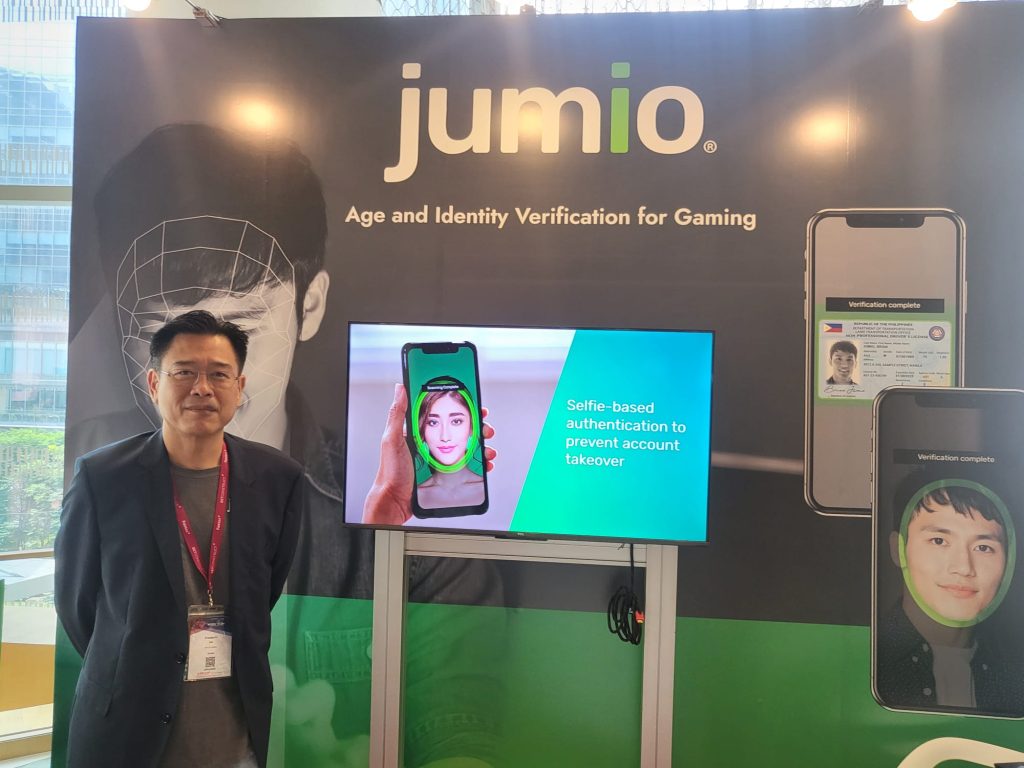In an interview with AGB, Frederic Ho, Vice President of Asia Pacific at Jumio, an online identity verification company, highlighted the current challenges faced by ID verification technology and its crucial role in the gaming industry.
Jumio specializes in automated, AI-driven identity verification, risk assessment and compliance solutions, and was one of the companies present at the 6th ASEAN Gaming Summit.
Ho emphasized the shift towards online verification processes in the online gaming industry, drawing parallels with traditional banking Know Your Customer (KYC) procedures, and addressing the challenges of verifying users in a digital environment compared to face-to-face interactions.
“The online gaming industry has seen significant growth in recent years, and Jumio has established itself as a leader in providing identity verification services, particularly in Europe. With extensive experience working with top gaming companies, we gained valuable insights into regulatory requirements and best practices,” Ho pointed out.
“One critical aspect is age verification, as preventing underage access is crucial. Jumio utilizes facial biometrics to determine if users are within a certain age range, complemented by identity document checks. This helps gaming companies avoid unintentionally allowing minors to create accounts.”
Additionally, user experience is a key focus for gaming companies, with Ho noting that with fiercer competition, there’s a push for streamlined identity verification processes to minimize clicks and speed up account opening.
“Everyone wants to have the least click, the fastest way to verify the identity. So it’s not just about catching the fraud. But of course, they benchmark themselves in terms of the time taken to complete all these account opening steps,” Ho told AGB.
However, the manager also addressed the increasing sophistication of AI and deepfakes exploiting the same channels, underlining the urgent need for the the development of liveness detection technology, which ensures the presence of a real human face in front of the camera, mitigating risks associated with deep fake images or videos.

“Liveness detection is the ability that before I take the selfie, I need to establish that there was a real human face in front of the camera, that it is not a still image, it’s not a video, it is not a replay,” he described.
“If this is not possible then the whole biometrics is useless. Anyone could just grab a Facebook picture and then present it in front of a camera and then the system thinks that it’s. So lifeness detection technology is critical”
Ho also highlighted the significance of continuous monitoring post-account opening to detect any fraudulent activities, ensuring compliance with regulatory standards, while identifying the Philippines and Australia, where gaming industries are flourishing, as Jumio’s key markets in Asia.
For the Jumio representative one of the main challenges posed is the varying regulations for data storage and privacy across different jurisdictions in Asia, and the need to navigate these complexities and providing standardized identity verification solutions for gaming companies operating across multiple markets.
“In Singapore, there is a National Digital Identity System. It’s called SingPass. So there will be one central repository where commercial companies can also apply for access to check this very quick check of citizen data and you verify that this user is good. In Malaysia, for example, the system is a little bit different. There is no central government database,” he described.
“So you can imagine that Thailand will have its own laws around how data can be used. So does Vietnam, so does Australia. So understanding the complexity of different markets could be a headache for gaming companies if they want to do cross-border, if they want to do multiple markets.”
Finally, Ho touched upon the relevance of identity verification processes in combating money laundering, a primary concern for both the banking and gaming industries.
At the same time, he highlighted the Philippines’ efforts to establish a gold standard for gaming regulation, aligning with global anti-money laundering initiatives.
In June 2021, the Paris-based FATF re-included the Philippines in the gray list following the country’s failure in a mutual evaluation conducted by the Asia Pacific Group on Money Laundering.
During the latest evaluation, the body pinpointed 18 deficiencies in the Philippines’ efforts to combat money laundering, terrorist financing, and proliferation financing. According to the update in January this year, eight of these deficiencies remain unresolved.
The Philippines’ new president Marcos has ordered the country’s Anti-Money Laundering Council (AMLC) and concerned agencies to implement measures to exit the gray list by October of this year.











